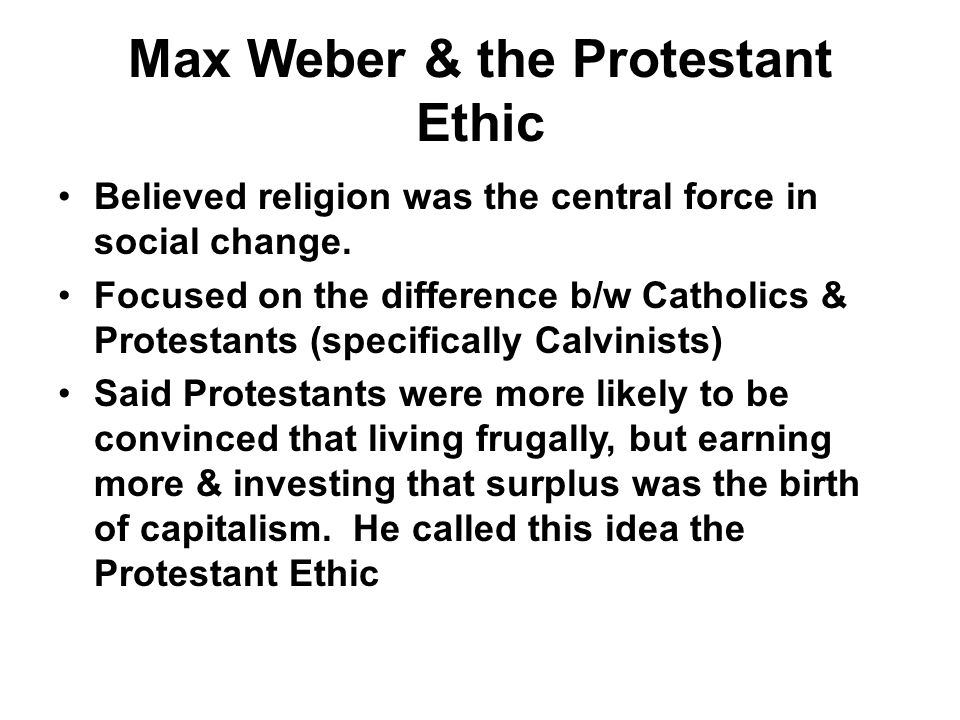Relevance: Sociology: Max Weber: Protestant ethics and the spirit of capitalism
In a series of essays in 1904, Weber presented the idea of the Protestant work ethic, a new attitude
toward work based on the Calvinist principle of predestination. In the 16th century, Europe was
shaken by the Protestant Revolution. Religious leaders such as Martin Luther and John Calvin
argued against the Catholic Church’s belief in salvation through obedience.
While Catholic leaders emphasized the importance of religious dogma and performing good deeds as a gateway to heaven, Protestants believed that inner grace, or faith in God, was enough to achieve salvation.
John Calvin in particular popularized the Christian concept of predestination, the idea that all
events—including salvation—have already been decided by God. Because followers were never
sure whether they had been chosen to enter Heaven or Hell, they looked for signs in their everyday
lives.
If a person was hard-working and successful, he was likely to be one of the chosen. If a
person was lazy or simply indifferent, he was likely to be one of the damned.
Weber argued that this mentality encouraged people to work hard for personal gain; after all,
why should one help the unfortunate if they were already damned? Over time, the Protestant work
ethic spread and became the foundation for capitalism.

For more such notes, Articles, News & Views Join our Telegram Channel.
Click the link below to see the details about the UPSC –Civils courses offered by Triumph IAS. https://triumphias.com/pages-all-courses.php

